Man without Pigs (1990)
Genre : Documentary
Runtime : 1H 2M
Director : Chris Owen
Synopsis
John Waiko is the first Papua New Guinea man to graduate with a PhD and be appointed a professor. He returns to the Binandere clan and his small village of Tabara in the Northern Province of PNG. Once there, he has to organise a celebration for his achievements with his family’s help. Since he has been away for most of his life, he has no recognised wealth in the village (the pigs used for gift giving), nor a network of supporters or knowledge of the preparation and rituals for having such a celebration. He wants the event to happen quickly but that’s not the way it works in Tabara. Man without pigs focuses on the antagonism aroused by the clash between traditional customs and Western values in this remote PNG community.
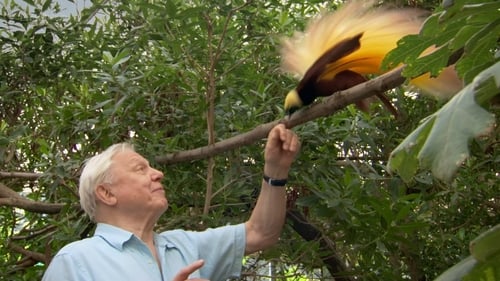
David Attenborough tells the remarkable story of how these " birds of paradise " have captivated explorers , naturalists, artists, filmmakers and even royalty.

Living in the depths of the New Guinea rainforest are the spectacular birds of paradise - creatures so beautiful that the first Europeans believed they must have fallen from heaven. Filming their bizarre courtship displays is the Holy Grail of wildlife film makers: some perform like iridescent acrobats, others make hypnotic pulsing sounds as they quiver and vibrate.

After squandering his grant money, despondent and recently widowed anthropologist James Krippendorf must produce hard evidence of the existence of a heretofore undiscovered New Guinea tribe. Grass skirts, makeup, and staged rituals transform his three troubled children into the Shelmikedmu, a primitive culture whose habits enthrall scholars. But when a spiteful rival threatens to blow the whistle on Krippendorf's ruse, he gets into the act as well.
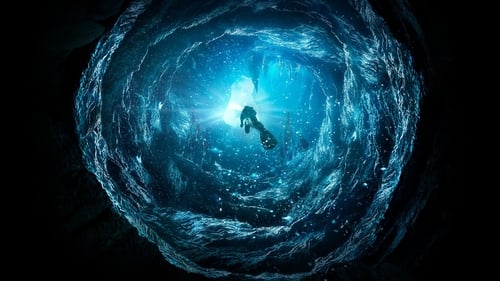
Master diver Frank McGuire (Richard Roxburgh) has explored the South Pacific's Esa-ala Caves for months. But when his exit is cut off in a flash flood, Frank's team—including 17-year-old son Josh (Rhys Wakefield) and financier Carl Hurley (Ioan Gruffudd)—are forced to radically alter plans. With dwindling supplies, the crew must navigate an underwater labyrinth to make it out. Soon, they are confronted with the unavoidable question: Can they survive, or will they be trapped forever?
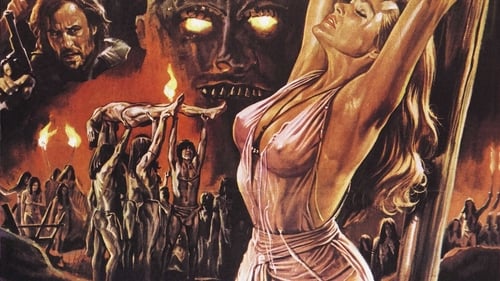
A girl and her brother fly to New Guinea to look for a lost expedition, led by her husband, which has vanished in the great jungle.
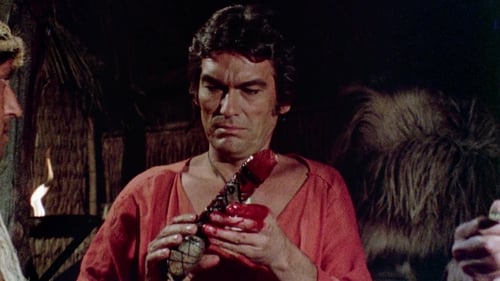
A woman's search for her missing sister leads her to the jungles of New Guinea, where she and an expatriate guide encounter a cult leader and flesh-hungry natives.
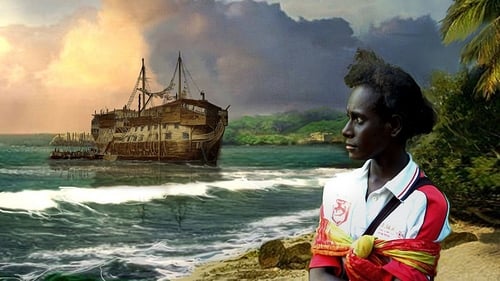
As a war rages on in the province of Bougainville in Papua New Guinea, a young girl becomes transfixed by the Charles Dickens novel Great Expectations, which is being read at school by the only white man in the village. In 1991, a war over a copper mine in the South Pacific tore the island of Bougainville apart. The reclusive “Popeye” (Hugh Laurie) offers the children in fourteen-year-old Matilda’s tiny village an escape with Charles Dickens' Great Expectations. But on an island at war, fiction can have dangerous consequences.
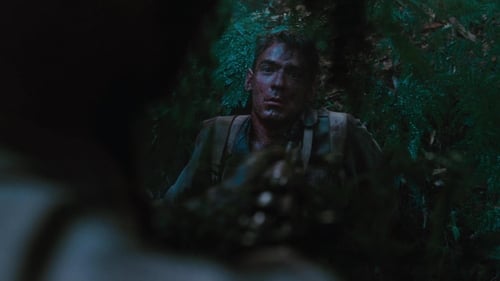
A bitter battle is fought between Australian and Japanese soldiers along the Kokoda trail in New Guinea during World War II.
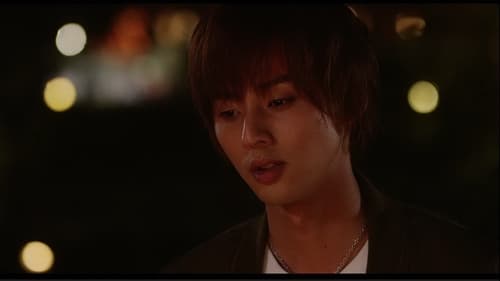
Living in the depths of the New Guinean Rainforest are birds of unimaginable color and beauty. When Europeans first saw the plumes of these fabulous creatures in the sixteenth century they believed they must be from heaven and called them Birds of Paradise. The people of New Guinea make even greater claims. They say the birds possess supernatural powers and magic. But to find these birds in New Guinea is one of the toughest assignments and to witness their extraordinary mating displays is even tougher. David Attenborough introduces a young team of New Guinean scientists on a grueling expedition to find and film these Birds of Paradise; the holy grail of wildlife filmmakers.
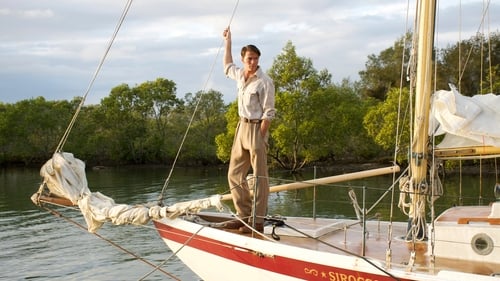
A mostly true account of future Hollywood star Errol Flynn's sea adventures in the early thirties, sailing from Australia to Papua in search of gold, along with his best friend Rex, a former Canadian smuggler; Dook, a handy English gentleman; and Charlie, a grumpy old sailor.

The film's title is borrowed from a Dani fable that Gardner recounts in voice-over. The Dani people, whom Gardner identifies mysteriously as "a mountain people," believe that there was once a great race between a bird and a snake, which was to determine the lives of human beings. Should men shed their skins and live forever like snakes, or die like birds? The bird won the race, dictating that man must die. The film's plot revolves around two characters, Weyak and Pua. Weyak is a warrior who guards the frontier between the land of his tribe and that of the neighboring tribe. Pua is a young boy whom Gardner depicts as weak and inept.

National Geographic joins author and explorer Piers Gibbon as he investigates one of mankind's ultimate taboos: cannibalism.
Gibbon treks into the rain forest of Papua New Guinea to find tribe members who ate human flesh. And, meets the members of the once-feared Biami tribe to witness their ritual techniques.

This is a film about a Naval Air Corps Director who hates the war. Director Honda uses this film to ask the question "What is war?", showing the human bonds between Japan and America, Japanese military tactics which had little regard for life, and the attitude of Japanese military personnel who treated their actions as if they were just doing a job. This film contains few battle scenes, concentrating instead on the love stories of young officers and female members of the community in this lonely air base.

Joe Leahy is the half-caste son of one of the first explorers of the Papua New Guinean interior. The documentary explores his relationship with the tribes that work his coffee plantation and explores what happens when the coffee market situation becomes more difficult.

Aliko & Ambai is a feature film about two young women facing the challenges of growing up in the beautiful Eastern Highlands of Papua New Guinea. The challenges are significant: tribal conflict, poverty, bullying, domestic violence,and forced marriage. Aliko struggles to complete her education and Ambai searches to escape her abusive home and reunite with her biological father. They navigate the many obstacles in their lives and endeavour to build brighter futures for themselves, supported by the strength of friendship.

In his now well-known role of narrator of wildlife expeditions, Attenborough accompanies a government-sponsored trek into the central New Guinea highlands to make contact with a group of natives never before seen by Europeans.

Pinky Scariano, Allan Ross, and Frankie Davis all join the Army Air Forces with hopes of becoming pilots. In training, they meet and become pals with Bobby Grills and Irving Miller, and the five struggle through the rigid training and grueling tests involved in becoming pilots. Not all of them succeed, and tragedy awaits for some.

The western half of the island of New Guinea has been known by many names including Netherlands New Guinea, West Papua, Irian Jaya and Papua. It is an extraordinary place where snow-capped mountains drain into massive rivers and 250 languages are spoken. For centuries, the world has jostled for control of this rugged, isolated region, with its abundant natural resources and strategic position. Through eyewitness accounts and rare archival film, this fascinating documentary paints a picture that is intimate in detail but epic in scope. It is a sweeping saga of colonial ambitions, cold war sellouts and fervent nationalism, which highlights the role of players such as Australia and the UN at crucial points.

The Road to Home (2015), tells the story of Benny Wenda, the Nobel Peace Prize nominated West Papuan independence leader, in his ongoing struggle to free his people from Indonesian colonial rule. Since his dramatic escape from an Indonesian prison in 2002, where he was held in isolation and tortured as a political prisoner, Benny has been an unceasing crusader on the international scene, campaigning to bring about an end to the suffering of his people at the hands Indonesia's brutal colonial regime. Granted political asylum in the UK, Wenda's freedom of movement was restricted in 2011 when, at the behest of the Indonesian government, Interpol issued a 'red notice' putting him at extreme risk of extradition should he travel.

A documentary following famed explorer Lewis Cotlow traveling into the heart of New Guinea in search of unknown tribal cultures.

Reviewers found this somewhat surreal film so visually stunning as to be worth watching even when it was not clear to them what was going on. In the story, Jozef Schrevek is a man with unusual powers which he wishes to pass on to his son before his death, which is coming soon. Unfortunately, his son is much more interested in boozing and womanizing and being a well-known habitué of nightclubs, than in taking his father seriously and receiving his powers and the responsibilities which come along with them. The tension between the two escalates when a young woman enters their lives.

While a woman is in the hospital preparing to deliver her child, her husband has all day to reflect upon his wife and their relationship. As he tends to his job as a television repairman, Slavek fondly remembers how he first met Ivana and the days they spent getting to know one another. Slavek also grows increasingly aware of the environment that surrounds him and questions the society his new child will be entering. Loaded with a repeated plea for social change, this is the first feature from Czech writer/director Jaromil Jires.
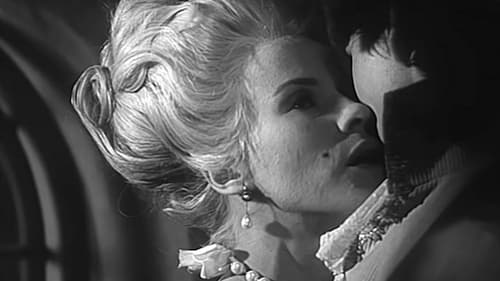
Sweden, 1782. Jacob, a young noble, somewhat wild and vehement, returns from his studies in France. After his absence, he returns home happy, but is even happier of meeting his beloved sister Charlotte again. However, she has been promised to the Baron Alsmeden, a man of great influence at court, and this fact will awake a feeling like jealousy in Jacob.

A portrait of Sigmund Freud as a young man.
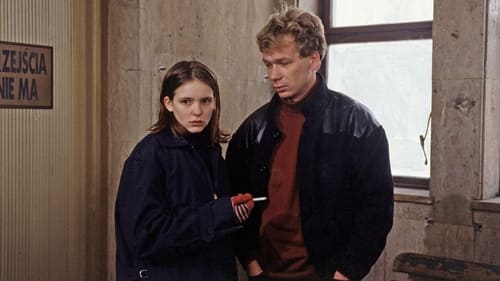
OSTKREUZ tells the episodic story of 15-year-old Elfie, who literally and metaphorically inhabits a no-man’s-land between the two Germanies shortly after the fall of the Berlin Wall. The film deploys a neorealist aesthetic to reinforce the difficulties confronting the girl, and by inference, Germany.

Experimental Yugoslav short film.

A candid, fly-on-the-wall BBC television documentary portrait of Russian Nationalist politician, Vladimir Zhirinovsky. The film shows the leader on a cruise surrounded by two hundred supporters getting plenty of media attention in New York. We are left with the nagging question: to what extent is Zhirinovsky really dangerous? To take that further, to what extent are populist politicians truly dangerous?
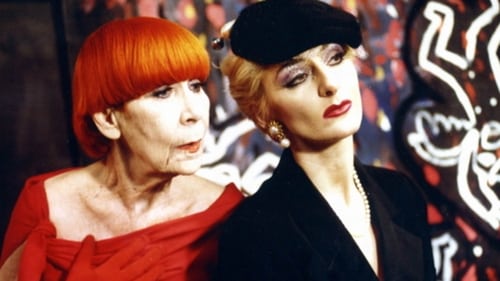
Neurosia is the autobiography of the director Rosa von Praunheim. The movie begins with Rosa presenting his autobiography in a movie theater. Before the film begins, he is shot. But - his body gets lost. A female journalist from a TV station begins researching the life of Rosa. In the course of the movie she speaks to lots of aquaintances, shows short clips from Rosas old movies. Her main aim is to provide sensational and shocking details from Rosas life. It turns out that nearly everybody had some reason to kill Rosa. At the end of the movie, she discovers Rosa at a boat where he is kept prisoner by some of his old enemies. She frees him, and the movie ends.

L’art d’aimer / The Art of Loving (1985), another colour short, is probably the weakest of the ten films, mostly because it’s a blurry monologue (read by Smolders) from the perspective of a man confused about past events from his youth, and the fate of his mother. Smolder’s voice is deadly monotone, and the short drones on towards a climax set in an old age home, and a room filled with men and women suffering from diverse ailments, or seniors trapped in some darkened mental gloom. - kqek.com

Experimental short film from Yugoslavia.

Colorfully edited vignettes of young characters having fun in the town of Onomichi.

Told from the point of view of a rescued buffalo, this is the story of a small town trying to find itself after the Armenian-Azeri conflict. The buffalo's reception by the other farm animals reflects the distrust rife in the countries of the post-Soviet world.

Two years after making his film BLIND KIND, Van der Keuken contacted the blind boy that had impressed him most at the time.

A documentary charting the rigors of the Russian space program, where the symbol of national pride would justify the most demanding training conditions.

A series of three episodes which explore the relationship between men, women and the physical and mental spaces they inhabit.

The Monarchy leads a repressive campaign against a Serb village, where an Austrian officer was killed.

Deals with filmic reality and conformity in East and West. Won acclaim at 1976 Edinburgh Festival.

Life on the Danube is essentially determined by two factors: the river itself and the often strange idiosyncrasies of the people who live along its banks. And they are multifarious: fishermen and graveyard wardens, Buddhist monks, allotment holders on Danube Island, stranded shippers, tramps and soldiers. All linked by the great current against which they swim.

Algimantas Puipa directed this 1997 drama about a painter wrestling with childhood memories of his father being exiled to Siberia.

Set in the second decade of the 20th century, this is a story of cinema entering villages of Kerala. The protagonist Diwakaran gets attracted to the new machine, bioscope, at an exhibition by Frenchman DuPont, who does bioscope shows on the coasts of Tamil Nadu.


















